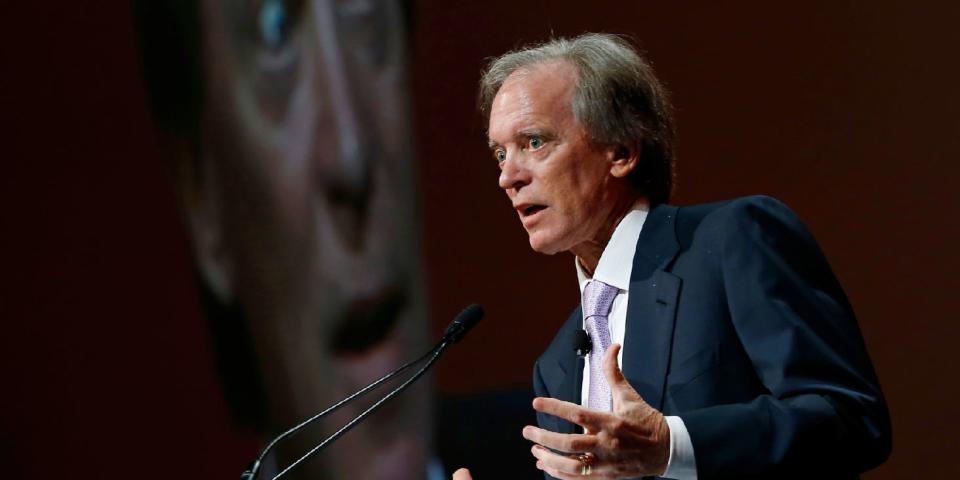Bill Gross said stocks are “clearly overvalued,” despite the recent market swoon.
The former PIMCO CIO doubts Fed will be able to lower short-term rates any time soon.
Instead of bonds and stocks, Gross said the “best bet” is arbitrage in M&A activity.
The spike in bond yields has punished the stock market this week — but billionaire investor Bill Gross still thinks it’s not enough.
In a note Wednesday, the former chief investment officer at PIMCO examined the correlation between the S&P 500’s forward price-to-earnings ratio with real 10-year Treasury yields, saying it indicates values are still too high.
While market bulls claim optimism is justified by artificial intelligence and expectations the Federal Reserve will ease rates quickly, Gross remains suspicious.
“Unless Chair Powell and company can significantly lower real 10 year Treasury rates from 2.25%, investors may eventually realize that bonds are a better deal than clearly overvalued stocks headed into an economic slowdown/recession,” he wrote.
Central bank officials indicated last month that future rate hikes are not off the table, but Gross doesn’t believe Fed Chairman Jerome Powell will be willing or able to lower short-term rates with inflation likely hovering around 3% in the future.
The latest reading on the consumer price index showed an annual increase of 3.7%, down sharply from last year’s high of 9% but still above the Fed’s 2% target.
“I’d pass on stocks and bonds in terms of future total returns,” Gross added.
Instead, he highlighted his “best bets,” pointing to arbitrage opportunities in upcoming deals like Microsoft’s acquisition of Activision as well as Tapestry’s deal for Capri.
Basically, traders can profit off of bets on stock price moves before and after a company acquires them.
He also touted pipeline master limited partnerships, citing favorable tax benefits despite signs they may have topped out with oil prices now facing downside risk.
“In any case, keep your eye on real (and nominal) 10 year Treasury rates. They need to come down a lot to validate existing forward P/E ratios. They may not,” Gross concluded.
Read the original article on Business Insider
Credit: Source link




